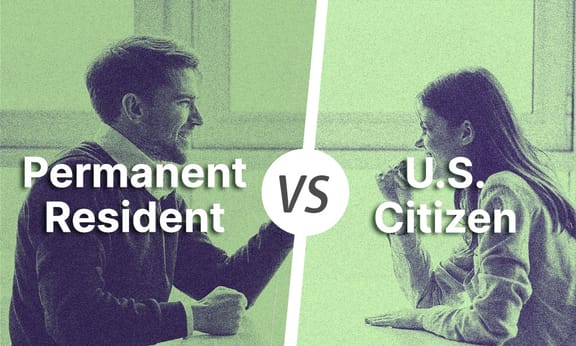For couples separated by borders, the K-1 visa—commonly known as the Fiancé(e) Visa—offers a legal pathway for U.S. citizens to bring their foreign fiancé(e)s to the United States to marry and begin a shared life together. Unlike family-based immigrant visas that require a marriage to already exist, the K-1 visa recognizes the intent to marry and allows couples to reunite on U.S. soil.
The K-1 visa is a nonimmigrant visa that allows a foreign national engaged to a U.S. citizen to enter the United States for the purpose of marriage. Once admitted, the couple must marry within 90 days, after which the foreign spouse can apply for adjustment of status to obtain a Green Card.
It’s important to note that the K-1 visa itself does not grant permanent residency. Rather, it represents the first step in a two-part process:
– entering the U.S. to marry,
– applying for permanent residence after marriage.
Eligibility Criteria
Both the U.S. citizen petitioner and the foreign fiancé(e) must meet certain legal requirements:
- U.S. Citizenship: Only U.S. citizens can sponsor a fiancé(e).
- Genuine Intent to Marry: Both partners must intend to marry within 90 days of entry.
- Freedom to Marry: Any previous marriages must be legally terminated.
- In-Person Meeting: The couple must have met in person at least once within the last two years, unless prohibited by cultural norms or exceptional hardship.
- Financial Sponsorship: The U.S. citizen must meet income requirements to prevent the fiancé(e) from becoming a public charge.
Failure to satisfy any of these conditions—or insufficient proof of a bona fide relationship—can result in petition denial.
Visa Process
The K-1 visa involves multiple steps requiring precision and documentation. Here’s how the process unfolds:
1. Filing the Petition (Form I-129F)
The U.S. citizen begins by filing Form I-129F, Petition for Alien Fiancé(e), with the U.S. Citizenship and Immigration Services (USCIS).
Supporting documents include:
- Proof of U.S. citizenship
- Evidence of the relationship (photos, communication records, travel receipts)
- Signed statements of intent to marry
- Proof of having met in person within two years
Once approved, USCIS forwards the petition to the National Visa Center (NVC), which then sends it to the appropriate U.S. embassy or consulate abroad.
2. Consular Application and Interview
The foreign fiancé(e) completes Form DS-160 online, undergoes a medical examination, and gathers required civil documents (passport, birth certificate, police certificates).
During the consular interview, an officer assesses the legitimacy of the relationship. If approved, a K-1 visa valid for six months is issued for one-time entry to the U.S.
3. Entry and Marriage in the United States
Upon arrival, the couple must marry within 90 days. This deadline is non-negotiable—failing to marry within the timeframe can lead to removal proceedings.
After the wedding, the foreign spouse files Form I-485 to adjust status and pursue lawful permanent residence.
On average, the full K-1 visa process takes 10 to 16 months, depending on factors such as:
- USCIS and NVC processing backlogs
- Consular appointment availability
- Requests for Evidence (RFE) or document delays
Once issued, the K-1 visa is valid for six months for entry. The K-1 visa cannot be renewed or extended.
The Path to a Green Card
Following marriage, the foreign spouse becomes eligible to apply for a Green Card through adjustment of status. While the case is pending, they may also apply for:
- Employment Authorization (EAD) to work legally in the U.S.
- Advance Parole to travel abroad and return during processing.
If the marriage is less than two years old at the time of Green Card approval, the spouse will receive conditional permanent residence for two years. Before expiration, Form I-751 must be filed jointly to remove conditions and obtain a 10-year Green Card.
Take a look at this blog too: What is the Marriage Green Card and How to Obtain It?
Common Mistakes to Avoid
Although the process appears straightforward, small errors can cause delays or denials. Frequent issues include:
- Missing or inconsistent documents
- Inadequate evidence of the relationship
- Failure to marry within 90 days
- Neglecting to apply for adjustment of status after entry
- Misunderstanding income or financial support rules
Because even minor mistakes can have lasting consequences, working with an experienced immigration attorney is strongly advised.
The K-1 visa is ideal for couples who:
- Plan to marry in the United States rather than abroad
- Wish to avoid long separations due to other visa backlogs
- Face cultural, legal, or logistical barriers to marrying outside the U.S.
Those already married—or in common-law unions—should instead consider spousal immigrant visa categories such as CR-1 or IR-1.
The K-1 Fiancé(e) Visa offers a meaningful opportunity for couples to reunite and start their future together in the United States. But beyond love, success in this process requires diligence, consistency, and legal accuracy.
At Grape Law, we guide couples through every stage—from the I-129F petition to post-marriage Green Card applications. With a 97% case approval rate and extensive experience in family-based immigration, we help you transform your long-distance relationship into a lasting reality.
📩 Begin your K-1 visa process with confidence. Contact us at info@grapelaw.com
Categories










